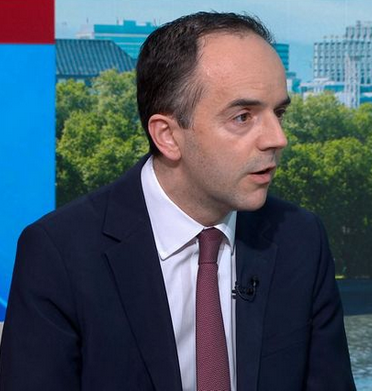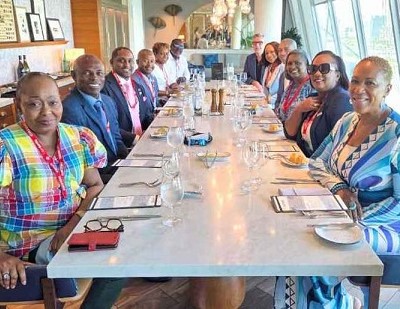Birmingham saw an unprecedented ensemble of over 120 key healthcare experts from India and UK, converge at the renowned ‘Queen Elizabeth Hospital’ to discuss the potential areas of collaboration and identify effective models to take the relationship to the next level.
The main objectives of the conference were to provide a forum to widen and enrich the healthcare research and innovation debate, deliberate upon workforce challenges, and hold meaningful discussions on the scale of exchange, current approach and possible solutions in this arena at a time when the Healthcare sector of both countries is at an inflection point.
The Conference which took place on March 22, 2019, was organised by the High Commission of India through the Consulate General of India, Birmingham, and was supported by University Hospitals Birmingham, NHS Foundation Trust, Greater Birmingham and Solihull Local Enterprise Partnership (GBSLEP) and Confederation of Indian Industry (CII).
Chairing the day-long Conference, Rt Hon Jacqui Smith, Chair UHB Hospitals NHS Foundation Trust welcomed delegates at one of UK’s largest hospital, setting the tone of the conference by emphasising how the partnership between the two countries can be mutually beneficial. High Commissioner of India to the UK, H.E Ruchi Ghanashyam assured the conference that both Governments are committed to support healthcare collaboration, and stressed that India and UK need to work together to address current challenges in this sector. She elaborated that India has been able to provide world class medical treatments at one of the most competitive prices. Mentioning about the traditional systems of medicines that has developed over centuries in India, she said that there is a lot in India that we can offer to people coming from abroad.
Dr, Indu Bhushan, CEO of National Health Authority of India focussed on the ‘Ayushman Bharat’-the world’s largest government funded healthcare insurance scheme which will benefit over half a billion people. He explained how it’s a game-changer, and how these revolutionary changes in the healthcare landscape of India offer opportunities for international healthcare organisations both in the public and private sector. With its guaranteed inpatient care worth INR 500,000 (GBP 5,495) per family per year, Ayushman Bharat Pradhan Mantri Jan Arogya Yojna (PM-JAY) will significantly help in providing quality healthcare by drastically reducing catastrophic healthcare expenditure which pushes 60 million Indians below poverty line every year. Ayushman Bharat PMJAY is set to reform Indian healthcare, as for the first time, this scheme seeks to change the current system by envisaging close involvement of the private sector which is critical to the removing the constraints of accessibility and affordability, and provide the same level of services to the poorest 40% population of the country, and change the whole structure from the present supply-based model to a demand-based model and from high-margin-low-volume to low-margin high-volume business model essential for unmet needs. Engagement with private sector will help streamline the supply side as it will lead to rationalisation of the packages, increase in number of private hospitals, and better fraud control, among other outcomes. The scheme aims at improvement in quality, affordability and accountability in the healthcare sector. Ayushman Bharat will be a game-changer for healthcare given its scale with a target of 500 million poor, 1,400 benefit packages and cover of INR 500,000 (GBP 5495) per family per year. The collective bargaining power of 500 million people will drive demand for high quality healthcare from both private and government providers.
Dr. D. S. Rana, Chairman, Sir Ganga Ram Hospital, New Delhi highlighted the fact that the 98 years old institution, also happens to be the largest medical teaching facility of its kind in the country, in the private sector. He further stressed that his institution was keen to partner with its British counterparts to address the challenge of shortage of skilled manpower in both countries.
Mayor Andy Street, Mayor of West Midlands, said, “Life Sciences is a key pillar of the WMCA’s Local Industrial Strategy. Through the work being done by institutions like the Queen Elizabeth Hospital and in our Universities, I am confident it is an area we can be world famous in. The current Indian Government has put a strong emphasis on healthcare for all Indians and this has already led to new research and development in healthcare initiatives. There couldn’t be a better time for us to explore synergies and potential partnerships between India and the West Midlands on life sciences.”
Ms. Neena Gill, Member of European Parliament, stated that Indian healthcare/ pharmaceutical sector is leading the way with rapid modernisation & lower cost leading to an explosion in health tourism from the UK. Ms. Preet Kaur Gill, Member of Parliament stated that to overcome the staff shortage being faced by NHS, we could develop mutually beneficial policies and relationships with countries like India, to support domestic training and up-skilling of health workers as well as to continue to welcome non-British nationals who come to support the everyday working of the NHS. She also added that Ayushman Bharat’s conception, implementation and future expansion must be with the most vulnerable and most marginalised people in mind to start to address the huge inequalities that exist.
Other notable dignitaries who spoke on the occasion included; Mr. Jayesh Ranjan, IAS, Principal Secretary to Government of Telangana, India who also co-chaired the session on Pharma and MedTech along with Mr Madhukar Bose, Deputy Head of Healthcare, British Department of International Trade. This session focussed on the opportunities for British companies to invest in India, and take advantage of the healthcare revolution in the country where the size of the Healthcare industry is exected to grow to USD 280 Billion by 2020. Mr. Jayesh Rajan spoke on the emerging MedTech and Pharma opportunities in India and how British Companies could capitalise by having a footprint in the Hyderabad ecosystem. And Mr. Madhukar Bose addressed the collaboration potential between India and the UK, and also highlighted the barriers that companies face, assuring that both governments are committed to finding solutions for the same.
















